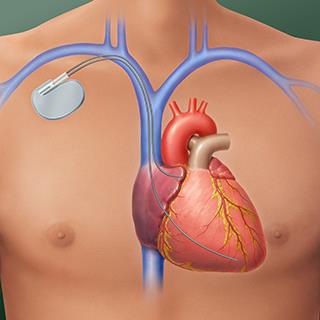
Implantable devices that help prevent sudden cardiac death don’t extend the lives of all patients with heart failure, according to results of a randomized controlled trial recently published in the New England Journal of Medicine.
Known as the DANISH study, this study looked at the impact of implantable cardioverter defibrillators (ICDs) in a specific subset of patients with heart failure. ICDs are small devices that monitor heart rhythm and send electrical pulses to correct any abnormal heart rhythms. ICDs are recommended in all patients with heart failure and reduced heart function, since reduced heart function increases risk for irregular heartbeats and sudden cardiac arrest. However, they’ve been found to be most effective in patients with heart failure that’s caused by heart disease. Experts wonder about the long-term benefits of ICDs in patients with heart failure that are free of heart disease.
To learn more, researchers randomly assigned more than 1,000 patients with heart failure not caused by heart disease to receive an ICD or usual care. A total of 556 patients received ICDs, while 560 patients received standard care. To qualify for the study, all patients needed to have reduced heart function and to be experiencing symptoms of heart failure, such as shortness of breath and fatigue.
After six years of follow-up, 22–23% of participants had died, and there was no significant difference in mortality rates among either group. However, patients receiving ICDs had half the risk of sudden cardiac death compared to those receiving standard care. Authors also note that ICDs improved survival the most in younger patients.
Based on findings, authors conclude that ICD implantation does not significantly reduce mortality risk among patients with heart failure not caused by heart disease. However, that doesn’t mean ICDs aren’t beneficial in this subset of patients, according to authors. Rather, findings highlight the need to target patients most likely to benefit from ICDs, such as younger patients or those with especially high risk for sudden cardiac death. Therefore, the challenge now is to conduct further research to help identify these patients and apply findings to everyday care.